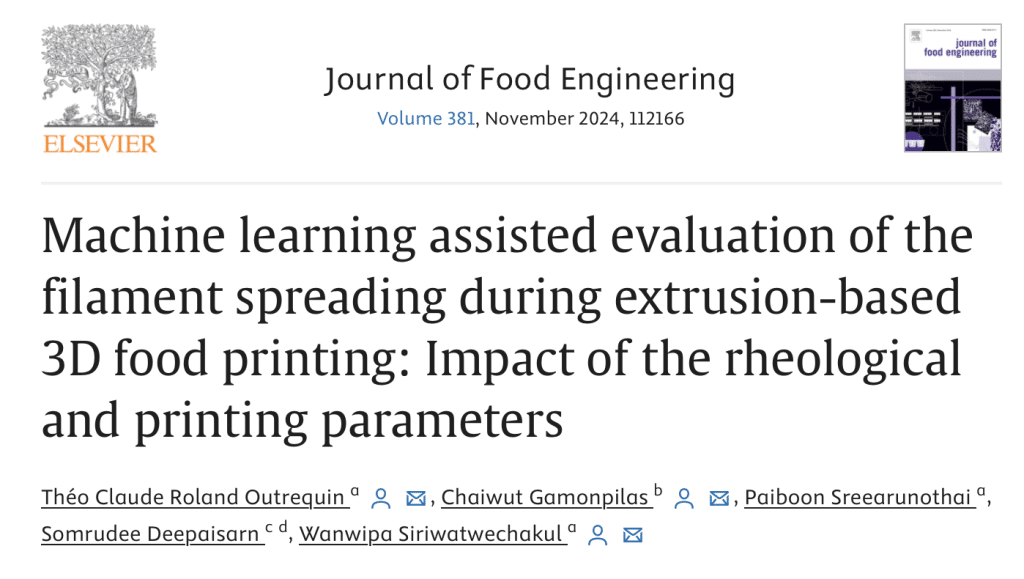This study explores the complex relationship between ink properties and process parameters in controlling material spreading during extrusion-based 3D printing, using pectin as model inks. Rheological parameters significantly affect the spreading ratio, with high-concentration inks (above 10 wt%) exhibiting reduced spreading of the printed filament. The study also examines the influence of printing parameters (nozzle diameter, pressure, and speed) on filament spreading. By leveraging machine learning techniques with a range of decision tree models, the relative effect of these factors on the filament spreading is determined. It reveals that viscoelastic parameters account for over 92% importance in the spreading ratio prediction. Extra Trees Regressor (with four features) model possessed the best predictive ability with R2 of 0.9775 (training) and 0.9441 (testing). This novel, multidimensional perspective, which combines experimental insights and predictive modeling, provides a robust framework for precise control over ink deposition. This approach could be highly beneficial for 3D food printing, integrating the power of machine learning into the fabrication of food products with precisely controlled dimensions.
- https://www.sciencedirect.com/science/article/pii/S0260877424002322
- Journal of Food Engineering
- 2024
